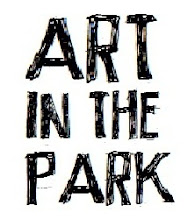There is an area of parkland behind
the Upperthorpe library called Philadelphia Greenspace; here the
trees and bushes act as a shield from the adjacent Penistone Road. It
is a place where you can hear the wind in the leaves, song birds calling,
where you can hold a conversation in spacious surroundings. But it
hasn’t always been this way.
If you were to have walked along this
stretch of Penistone Road between 1967 and 1993, your experience
would have been altogether different. To one side of you would be a
monstrous block of flats, much like Park Hill above the Sheffield
railway station. These were the Kelvin flats, which formed part of a
housing solution during the slum clearances of the late sixties. The
program of clearance, demolition and resettlement swept across the
upper Don Valley, from the Parkwood estate up into parts of
Walkley. You can find more information on the Walkley slum clearances from the Walkley History Project's website, which you can find here.
The architectural style of Kelvin
Flats was unflinchingly modernist. The building was so abstract that,
compared to its surroundings, it could have been brought in from
outer space. And while this stretch of the Don Valley has a heritage
of large stand-alone buildings (the Infirmary, Hillsborough
Barracks, the Hillsborough Library building), the Kelvin Flats were
unprecedented in their visual brutality.
When communities were first re-housed
into the flats, the response was surprisingly favourable. Residents
who had lived in old terraced housing now lived in new clean
properties which were easy to heat and had mod-cons such as inside
toilets. Yet the benefits associated with Kelvin soon became
overshadowed; with antisocial behaviour rising and a lack of general
maintenance and upkeep, the flats were demolished in 1993 - only
twenty-six years after they were built.
Diane Leek, a former Lord Mayor of
Sheffield, was once a Kelvin resident. Diane was kind enough to
agree to meet me, for which I am very grateful. The meeting took
place in the conservatory of the Hillsborough Hotel, a stone's throw
from the Philadelphia Greenspace. We sat in view of Parkwood Springs,
beside a large contemporary building that until recently had housed Mecca
Bingo. Had Kelvin Flats still been standing, we would have been sitting in
their shadow.
Diane talked about her experience of
Kelvin Flats, along with other histories of the upper Don Valley. She
was not only incredibly knowledgeable, but also a well known and
friendly face in the area, greeting a number of passers by in the short
time that I spent with her.
You can listen to some of Diane's reflections on
Kelvin Flats and the Upper Don Valley here:
Kelvin
Flats
“I
could be bounded in a nutshell
and
count myself a king of infinite space,
were it
not I have bad dreams.”
I confuse the ghosts of Kelvin
Flats
with pigeon lofts at Cuthbert
Bank.
Both nests of hair or feathers,
the fall
and rise of breathing, breast
to breast.
Which one meant uplift, flight?
The work of soft rot, Jew’s
Ear, water
has opened in this wooden box
a space for ladders of
sunlight,
a gradient of leaves and hail.
Before no room for attic or
cellar,
wind up cars, clockwork
figures,
a diagram of streets behind
glass
clouded by the body’s heat.
It took the mind to part the
walls,
shift the roof to let in the
night,
make a hole to funnel fire,
put a running stream below.
John
Barron
Rubbish bags
Rotting concrete, blackened cavities
in rows waiting to be filled.
Milk floats hum along the landings.
No ball games.
Harsh brutalist time.
Steps when the lifts break down.
Push chairs bump, walking sticks tap,
stop to get their breaths back.
Swing balls wreck homes,
stage sets open up:
wall papered living rooms
and lavatories hang by a thread.
Then its dust and rehousing.
Forget the suicides,
their lives have umravelled
like burst rubbish bags.
Marion New





.jpg)





